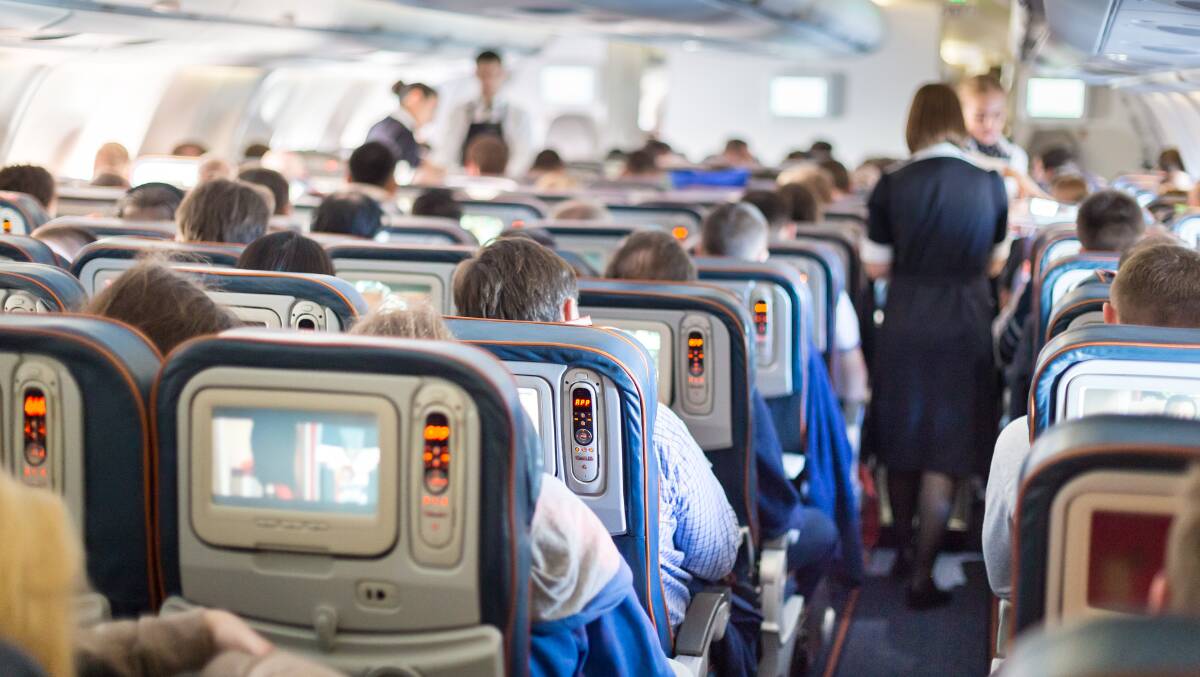Got the travel bug and planning a summer overseas trip?
Create a free account to read this article
or signup to continue reading
Well along with the planning, preparing and packing, there is another important task to tick off your to-do list - getting vaccinated.
Diseases which are virtually unheard of in Australia (except in travel horror stories) can be prevalent overseas, think typhoid, diptheria and yellow fever to name just three.
And infections which you may have been vaccinated against as a child like measles or even polio may strike when you are in a foreign country because your immunity has waned over time.
So if you don't want your dream trip to turn into a medical nightmare - get the recommended vaccinations and find out what other health requirements you might need before you go.
That's the recommendation of Australia's Immunisation Coalition which is advising travellers to see their GP for vaccinations six to eight weeks before they leave to make sure they're fully protected and help ensure their trip is one to remember not one they would prefer to forget.
Reseach by global healthcare company Sanofi Australia in 2022 showed one in three Australians who intended to travel overseas would either not see a doctor to discuss travel health and vaccination requirements or would leave a consultation too close to their departure to receive optimum protection.

More than 1000 Australians who had indicated their intent to travel were surveyed. More than half said they were more likely to investigate COVID-19 vaccination requirements (56 per cent) than other travel vaccination recommendations (36 per cent).
"Australians need to look beyond COVID and understand other health risks and prevention strategies before they travel," said travel medicine expert Dr Deb Mills.
"Preventable illness can turn a long-awaited and expensive trip into a holiday from hell, where not only time is lost but financial losses are significant as well."
"Many people are surprised to discover that some the vaccines they received as a child do not provide lifelong protection and that many infectious diseases that have disappeared from Australia are still very much present overseas," Dr Mills said.
UNICEF and the World Health Organization recently warned of a "perfect storm" of conditions for measles outbreaks, with recent trends showing a surge in global cases.
Dr Ginni Mansberg, Immunisation Coalition Board Director, said getting sick abroad and exposing loved ones to diseases can be prevented if the right measures are taken.
"With families excited to travel abroad this upcoming holiday season, it is crucial to add speaking to your GP about travel health and vaccine recommendations for your holiday to your pre-travel checklist," she said.
The Sanofi research showed only 15 per cent of people who plan to travel overseas fully researched and understand the health recommendations relevant to their destination despite more than three quarters being concerned about becoming ill in another country and and 68 per cent worried about being caught in an infectious disease outbreak other than COVID-19.
Only half the people surveyed said they would consider vaccination to reduce their risk of infectious diseases, including when travelling to developing countries and visiting rural areas or going 'off the beaten track'.
Typhoid
The Indian subcontinent, Africa, south and southeast Asia and South America have high rates of typhoid which can be fatal in one in five cases if not treated. However, some strains of typhoid bacteria are becoming resistant to antibiotics making it particularly important to be vaccinated before travel.
Some diseases which are prevalent overseas and which Australians may have previously been vaccinated against but for which their immunity has waned are: measles-mumps-rubella (MMR),diphtheria-tetanus-whooping cough (pertussis), polio, chickenpox (varicella), influenza.
Influenza is the most common vaccine-preventable disease caught by travellers.
As well as making sure your childhood vaccinations are up to date some other vaccinations which may be recommended are cholera, hepatitis A, Japanese encephalitis, meningococcal, rabies, tuberculosis, typhoid and yellow fever.
The Australian Department of Health warns travellers can bring infections into Australia which can lead to disease outbreaks (and we all rmember the start of COVID).
Some countries may also require proof of immunisation before you can legally enter.


